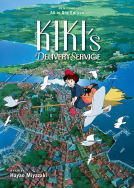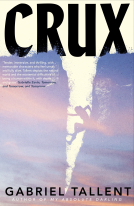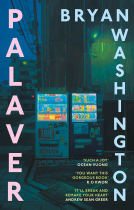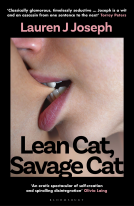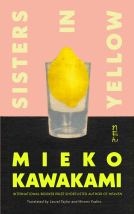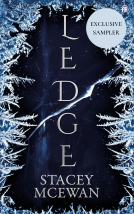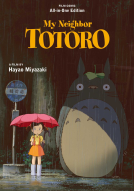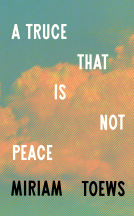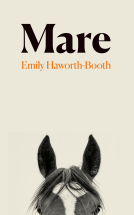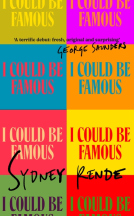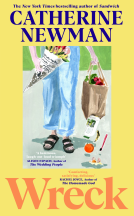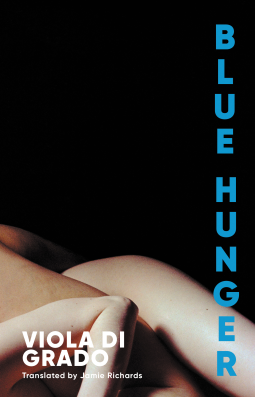
Blue Hunger
by Viola Di Grado (trans. Jamie Richards)
This title was previously available on NetGalley and is now archived.
Send NetGalley books directly to your Kindle or Kindle app
1
To read on a Kindle or Kindle app, please add kindle@netgalley.com as an approved email address to receive files in your Amazon account. Click here for step-by-step instructions.
2
Also find your Kindle email address within your Amazon account, and enter it here.
Pub Date 9 Mar 2023 | Archive Date 8 Mar 2023
Talking about this book? Use #BlueHunger #NetGalley. More hashtag tips!
Description
An electrifying descent from loneliness and grief into obsessive, all-consuming love, by an Italian literary star.
‘When Xu bites me, when she has me in her teeth, naked and bad on top of me, everything is good.’
In a skyscraper apartment overlooking Shanghai’s blue-tinged, pulsating nightlife and filled with rotting food, two women swallow little yellow pills that will make all things dangerous feel safe. They’re both running from a turbulent past.
In abandoned factories and dilapidated slaughterhouses, Xu pushes Ruben to extremes of pleasure and pain that she has never experienced before, to a place where language breaks down and passion becomes consumption.
Blue Hunger asks how we create our identities and how we escape them; it is a fever-dream of a novel, visionary and uncanny, that demolishes all taboos and wisely explores, in a wildly imaginative language, the twisted peaks of loss and desire.
Advance Praise
‘To read Blue Hunger is to enter a dreamlike state, guided by irresistible, evocative writing, immaculate details, and vivid emotions dripping with desire. Viola Di Grado offers us a brilliant, highly immersive story about the need to consume and be consumed, love, messiness, and the power of language. Blue Hunger is a wholly compelling piece of art, and Viola Di Grado is a genius.’
– Jami Attenberg, author of The Middlesteins
‘Viola Di Grado is, most importantly, a powerful and original writer; the fact that she also writes, movingly and with complexity, about members of the LGBT population, renders her work all the more singular.’
– Michael Cunningham, author of The Hours
‘Blue Hunger is a devastating study of the ways in which grief renders everything, even the self, foreign. A gorgeous grotesquerie of lust and despair backdropped by the writhing rhythms of Shanghai.’
– Rachel Yoder, author of Nightbitch
Available Editions
| EDITION | Paperback |
| ISBN | 9781914484278 |
| PRICE | £12.99 (GBP) |
Links
Average rating from 4 members
Featured Reviews
 Camille O, Librarian
Camille O, Librarian
Blue Hunger by Viola Di Grado captures perfectly the isolating and strange feelings the narrator experiences through the combined affects of bereavement and living in a foreign place, culture and language.
Blue Hunger is a novel about an Italian woman who goes to Shanghai after her twin brother's death and finds herself in an obsessive love affair. The narrator, who doesn't share her name but often goes by her brother's, Ruben, moves to Shanghai to fulfil the dream of her brother, who recently died. She teaches Italian and meets Xu, a Chinese woman also trying to avoid the past. They meet in abandoned factories and slaughterhouses and in Xu's apartment, filled with rotting food, where they take yellow pills and hunger for pleasure and pain, but the narrator always wants more.
This is a dreamlike novel that combines the imagery of consumption with ideas of grief and need. It also explores language, particularly the gaps in between Chinese and Italian (the novel is translated from Italian), and how language impacts self and identity, and the narrator's views of different cultures. The relationship between the protagonist and Xu is filtered through this, and through the fact that you can only see the relationship from one side. The relationship itself is a fairly classic kind of all-consuming love in a foreign city, focused on hunger and need, and whether what we want is good for us, though blurbs describing the book as abolishing all taboos are definitely over-exaggerating.
The book presents an interesting, uncanny view of a grieving person in a foreign country, seeing both place and language through their own lens, and someone looking for an all-consuming kind of pleasure to erase the past. As you'd expect from the premise, it isn't really a book with much of a plot, but more moves through scenes in an artistic way, more surreal than engaging with the realities of their lives.
'Eat me: make me yours, make me disappear'
'We like love because it's an edible feeling': Di Grado does a marvellous job of building this text on metaphors that she intertwines so that they feel organically and thickly connected - the cultural weight of food consumption with the concept of being consumed by desire; the reading of bodies and embodied feelings with the lexicology of ideograms and language ('the ideogram for love contains the one for claws and night'); the way grief and death may lead to a desire to wipe out the self as an act of complicity.
Placing an Italian woman in China adds to the sense of displacement, isolation and alienation as the protagonist mourns the death of her twin brother whose name she takes, and pursues a relationship with the elusive Xu whose own propensity for sexualised biting and ritualistic unclothing that follows the direction of reading ideograms play into the structure of the text.
'Time becomes physical, muscular. Blood is quicker than the brain. Abrasions on the arms and chest, on the fingers, form scabs. The skin defends itself, regenerates, and in regenerating forgets it was ever wounded' : gorgeously written, dense and rich, here the conceit of embodiment merges perfectly the unspoken with the textual.
Readers who liked this book also liked:
Created by Hayao Miyazaki
Comics & Graphic Novels, Sci Fi & Fantasy
